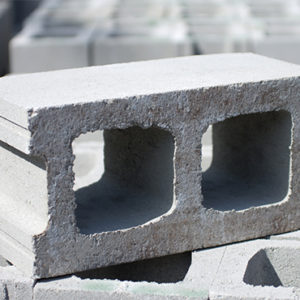Mashroo3k. Consulting Company offers a feasibility study for a cement block factory project, with the highest return on investment and the best payback period, through a set of accurate studies, analysis of competitors’ strategies, and providing competitive price offers.

The cement block factory provides foam concrete products, which is a type of lightweight porous concrete, containing 20% foam by volume. Foam concrete is produced by using foam materials, adding air-retaining materials, or through gas-generating chemical reactions. Cement blocks are used in the construction of industrial waste complexes, such as fly ash or bottom ash. Cement blocks are widely used in the construction sector, and thermal insulation applications for homes, factories, and large buildings. u003cbru003eFoam concrete first appeared in Sweden as a patent in 1923 for use as an insulating material, and its uses have been greatly developed and advanced in recent years. The cement block factory targets contracting companies, supply offices, and building material traders. Mashroo3k Company provides investors wishing to invest in a cement block factory project with a set of specialized feasibility studies based on updated databases specific to the Omani market, which helps the project succeed, achieve the highest return on investment, and the best payback period.



Products of the highest quality.
Implementation of approved quality standards.
Compliance with recognized health regulations.
Utilization of the latest packaging and wrapping technologies.
Management of innovative development and marketing ideas to enhance competitive advantages.
Executive summary
Study project services/products
Market Size Analysis.
Risk Assessment.

The Industrial Sector in the Gulf Cooperation Council (GCC) Countries
The industrial sector is considered the cornerstone of the progress of global economies, and its indicators reflect the advancement and development of countries. Without the strength of the industrial sector in some Western countries, these nations would not have been pointed out as role models in the Arab world today. Given the importance of this vital sector, “Mashroo3k” would like to present to you the key highlights of the sector in the GCC countries:
Kingdom of Saudi Arabia:
The number of operating factories is 8,258.
The licensed workforce is 968,121 workers.
The capital of these factories is estimated at approximately 1,256,616 million Riyals.
The largest industrial sectors by number of factories are non-metallic minerals (1,641 factories), followed by rubber and plastic (1,122 factories).
The Riyadh region holds the largest share of factories with 3,332 factories, followed by the Eastern region with 1,877 factories, and the Makkah region with 1,741 factories.
Small factories in Saudi Arabia represent 43.7% of the total number of factories (3,671 factories). These factories employ 111,354 workers.
Medium factories in Saudi Arabia represent 46.6% of the total number of factories (3,907 factories). These factories employ 379,342 workers.
Large factories in Saudi Arabia represent 9.7% of the total number of factories (813 factories). These factories employ 477,425 workers.
There are 1,801 factories under construction in Saudi Arabia. The licensed workforce in these factories is estimated at 78,650 workers. The capital of these factories is 68,481 million Riyals.
The Riyadh region holds 40.4% of the total number of factories under construction (728 factories).
United Arab Emirates:
According to the latest statistics, there are 6,481 factories.
The workforce numbers 737,126 workers.
There are 32,654 establishments in the manufacturing sector.
The value of production in the UAE’s manufacturing sector is 448,127 million AED.
The production of coke and refined petroleum products is the largest industrial sector in terms of production value, with an output of 119,787 million AED according to the latest statistics.
The value of industrial exports exceeds 240 billion AED.
The UAE aims to be ranked 25th in the Global Competitiveness Index for industrial performance, having ranked 38th in previous years.
The country’s strategy supports the creation and establishment of 13,500 small and medium enterprises.
Kuwait:
The number of industrial establishments is 5,539.
The workforce in the sector is 160,654 workers.
The total production value is estimated at 35,929,708 thousand Kuwaiti Dinars.
The number of establishments with 1-10 employees is 4,526, employing 24,048 workers. The total production value of these establishments is 250,322 thousand Kuwaiti Dinars.
The number of establishments with 11-19 employees is 464, employing 6,871 workers. The total production value is 113,126 thousand Kuwaiti Dinars.
The number of establishments with more than 20 employees is 549, employing 129,735 workers. The total production value is 35,566,260 thousand Kuwaiti Dinars.
Qatar:
The number of industrial establishments is 3,467.
The workforce in these establishments is 161,872 workers.
Small and medium industries account for approximately 84% of the total number of operating factories in the country.
The manufacturing sector contributes approximately 9.2% to the GDP.
Establishments with fewer than 10 employees total 1,799, employing 8,305 workers.
Establishments with more than 10 employees total 1,668, employing 153,567 workers.
Sultanate of Oman:
There are 61,217 institutions operating in the manufacturing sector in Oman.
The workforce in the manufacturing sector is 237,000 workers.
The manufacturing sector contributes 9.6% to Oman’s GDP.
31.4% of Oman’s total exports are from the manufacturing sector.
The manufacturing sector has grown at an annual rate of 6% over the past five years.

The Industrial Sector in the Gulf Cooperation Council (GCC) Countries
Kingdom of Saudi Arabia:
The Riyadh region holds 40.4% of the total number of factories under construction (728 factories).
United Arab Emirates:
The UAE aims to be ranked 25th in the Global Competitiveness Index for industrial performance, having ranked 38th in previous years. The country’s strategy supports the creation and establishment of 13,500 small and medium enterprises.
The industrial sector contributes approximately 8.4% to the GDP.
Kuwait:
The workforce in these establishments totals 129,735 workers. The total production value of these establishments is 35,566,260 thousand Kuwaiti Dinars.
Qatar:
The manufacturing sector contributes approximately 9.2% to the GDP.
Sultanate of Oman:
31.4% of Oman’s total exports are from the manufacturing sector.